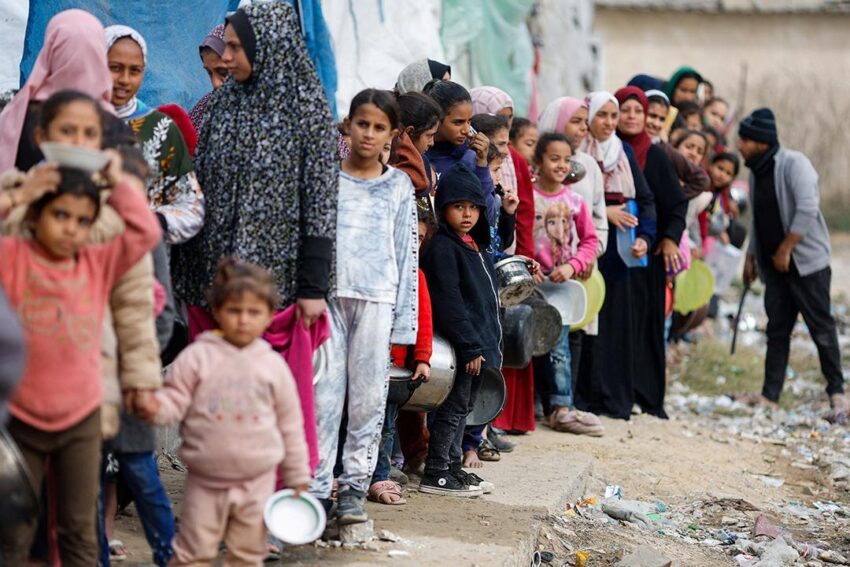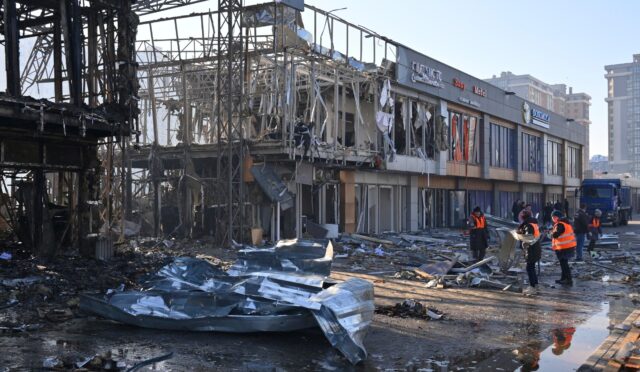Gaza Humanitarian Crisis: Netanyahu’s Actions and Consequences
On Monday, Israeli Prime Minister Benjamin Netanyahu declared that Israel will “take control” over all of Gaza as military operations intensified in the war-ravaged territory. This announcement coincides with the Israeli military’s call for evacuations in the southern city of Khan Yunis, where residents are bracing themselves for what is being termed an “unprecedented attack.” The military has launched extensive ground operations against Hamas and airstrikes that reportedly killed at least 22 people on the same day, exacerbating an already dire humanitarian situation.
Netanyahu’s determination is clear; in a recent video posted on Telegram, he stated, “The fighting is intense, and we are making progress. We will take control of all the territory of the Strip.” He emphasized the need for decisive action to achieve their military objectives, indicating plans to displace Gaza’s population as part of the expanded offensive sanctioned earlier this month.
International Concerns Over the Humanitarian Crisis
As the conflict escalates, international pressure mounts on Israel to lift its blockade of Gaza, which has now been in effect for over two months. The World Health Organization’s Director-General, Tedros Adhanom Ghebreyesus, warned that “two million people are starving” due to critical shortages of food, water, and medical supplies. He highlighted the dire reality that while aid remains blocked at the borders, the humanitarian crisis within Gaza deepens, with risks of famine calling for urgent intervention.
President Donald Trump acknowledged the severe food shortages faced by the population, promising that the situation would be addressed soon. Nevertheless, resistance to humanitarian aid within Israel remains strong. Far-right Minister Itamar Ben Gvir criticized any resumption of aid, insisting that hostages should receive precedence, while Finance Minister Bezalel Smotrich supported limited aid, claiming it would not benefit Hamas, but instead help civilians and sustain diplomatic support.
Intensifying Military Operations
The Israeli military reported on Monday that airstrikes had targeted around 160 separate locations in Gaza, amplifying the conflict’s toll. Heavy bombardments were particularly noted around Khan Yunis, where local sources reported 11 deaths due to strikes on that day alone. The Israeli military has urged immediate evacuations in affected areas, designating Khan Yunis as a hazardous combat zone, which has contributed to the growing chaos and despair.
Eyewitness accounts from Gaza depict a harrowing situation. Residents describe the relentless bombardment and chaos as akin to an apocalypse, with civilians caught in the crossfire. Images from local hospitals reveal the suffering of children and families unprotected from the violence, highlighting the terrible cost of war on innocent lives.
A Call for Global Intervention
In the face of overwhelming loss and suffering, Gazans are voicing their anguish and desperation. Ayman Badwan, grieving for his brother, expressed the collective weariness in a statement to AFP: “We are exhausted and drained—we can’t endure this any longer. Enough is enough. A solution must be found, and the world must intervene.” Such calls reflect the urgent need for international attention and action amidst the ongoing crisis.
The origins of the current escalation date back to Hamas’s attacks in October 2023, which led to significant casualties in Israel. An AFP tally has reported 1,218 deaths in Israel, predominantly among civilians, alongside the hostage crisis that ensued. Meanwhile, the health ministry in Gaza reports that since the renewal of Israeli strikes in March, around 53,339 individuals have lost their lives, underscoring the catastrophic toll of this enduring conflict.







